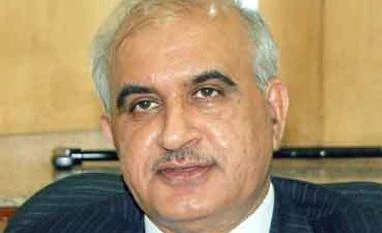As part of its new strategy to minimise bad loans, Kolkata-based UCO Bank is shifting its focus away from corporate to retail loans. The bank has set a target of selling non-performing assets (NPAs) worth about Rs 1,000 crore to asset reconstruction companies this year.
Charan Singh, executive director of the bank, tells Namrata Acharya that new NPA management strategies are yet to evolve in India. Edited excerpts:
What is your outlook for credit and deposit growth?
The economy is showing signs of revival. However, the falling household savings rate is a matter of concern.
As far as UCO Bank is concerned, we are trying to grow more in the retail sector, particularly SMEs (small and medium enterprises) and agriculture. We expect a credit growth of 10-15 per cent. Although the credit growth was flat in the first quarter, it always starts picking up in the second half of the year. In deposits too, we expect a similar growth of 10-15 per cent.
What will be your strategy for the corporate sector?
We are not inclined to grow in the corporate sector now, as we already have a fairly large exposure to it. At present, the corporate sector loans account for 55-60 per cent of our loan book. We are reducing it gradually. We would like the retail loan portfolio to be 60-65 per cent of our total loans. It has been our strategy to reduce exposure in the corporate sector, and increase it in the retail sector, particularly housing. We grew 33 per cent in the housing loan sector.
Since you are bullish on the housing sector, what is your view on teaser home loans, which the State Bank of India recently raised with the Reserve Bank governor?
We will not go for teaser loans. It was a popular, but controversial product. There are chances of default and we don’t want to take chances at the moment as we already have very high NPA levels.
What is your strategy to deal with high NPAs?
Our fresh slippages have started coming down. In the last quarter, it was Rs 1,252 crore, which is 40 per cent less than the preceding quarter. There is a downward trend in fresh slippages. We have almost bottomed out. By the end of this year, we would like to bring our gross NPA level to at least six per cent, against the current seven per cent.
Are you selling NPAs to asset reconstruction companies (ARCs)?
In the first quarter, we could sell about Rs 115 crore and in the last quarter, we sold NPAs worth Rs 409 crore. By the end of this year, we plan to sell about Rs 1,000 crore worth of NPAs to ARCs. However, I find this to be a very ambitious target, as we are not receiving good bids. As an alternative strategy, we are now focusing on middle or lower segment, with loan size below Rs 50 crore.
In the middle segment, we have exclusive charge of assets; here, we are taking all sorts of actions including invoking the SARFAESI Act (Securitisation and Reconstruction of Financial Assets and Enforcement of Security Interest Act, 2002). We are also going for compromise solutions in a big way. Close to 50 per cent of the NPAs are from big corporates.
Are you looking for the strategic debt restructuring (SDR) route for NPA management in any of your accounts?
The market for SDR in India is yet to develop. It is not in a very advanced stages. In SDR, the biggest challenge is how to manage the company and how to get a good management. Transferring equity from promoter to bank is not a problem, but running the company is. There is no market for getting trained professionals.
What is your outlook for net interest margin (NIM)?
Our NIM is 2.31 per cent, which is low because of high NPAs. We would like to have it about 2.50 per cent.
Are you in a position to reduce interest rates in the near future?
It is a dilemma for us. HDFC (Bank) can afford lowering rates because they have high levels of NIMs and Casa (current and savings accounts). I don’t think we can go to that extent. We will take a view on interest rate based on ALCO (Asset Liability Committee) recommendation.
After the recent Iran nuclear deal, will UCO Bank be impacted, as all trade with Iran was being settled by the bank on a rupee-trade mechanism?
It will take a little time for the lifting of sanctions to take place. There will certainly be an impact and we are trying to make it good by aggressively increasingly our Casa ratio.
Top Section
Explore Business Standard
)